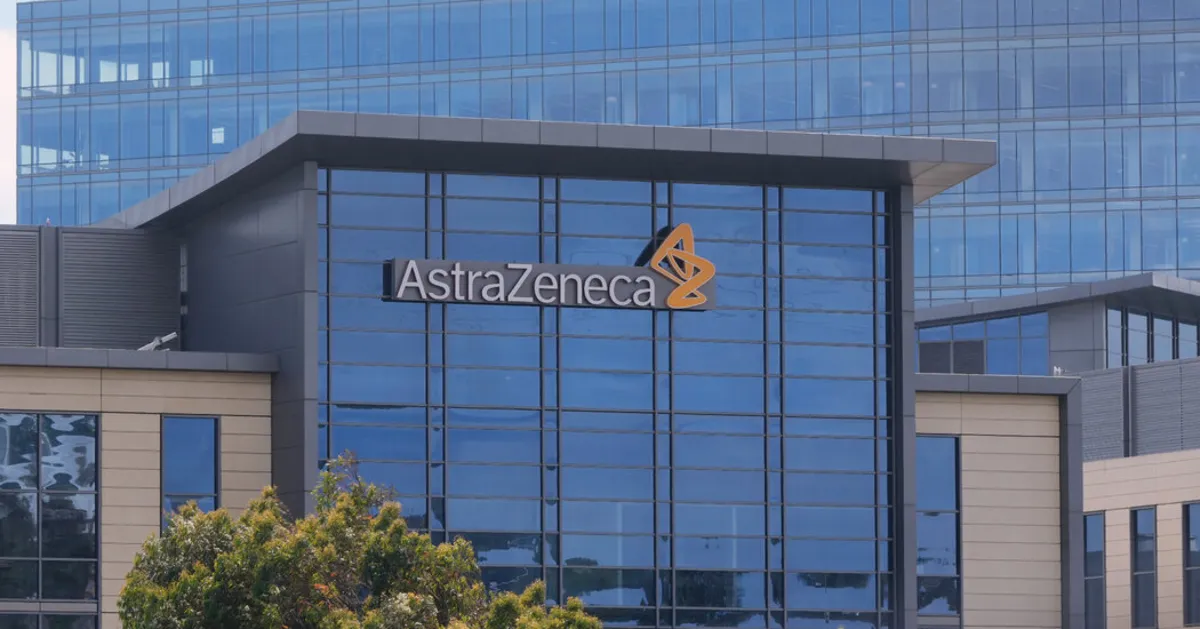
President Donald Trump is set to announce a significant drug pricing agreement with the British pharmaceutical company AstraZeneca on Friday afternoon. This new deal follows a similar arrangement made with Pfizer just last week, which aims to lower the prices of certain drugs in the United States, particularly those covered under Medicaid.
These agreements are a direct response to pressure from President Trump, who has threatened to impose tariffs on drug manufacturers if they do not lower their prices and bring production back to the United States. Pfizer recently disclosed that its drug pricing deal with the administration has earned them a three-year grace period from Trump's proposed tariffs.
In July, AstraZeneca announced plans to invest $50 billion over the next five years to build and expand its manufacturing and research facilities in the United States. On Thursday, the company celebrated the groundbreaking of a new manufacturing site in Virginia, which is expected to produce drugs for cancer, weight loss, and blood pressure management. Pascal Soriot, AstraZeneca’s CEO, was anticipated to participate in a scheduled event concerning drug prices at the White House.
In July, President Trump reached out to 17 of the largest drug manufacturers, including AstraZeneca, urging them to lower their prices. Officials have indicated that discussions are underway with other major drug companies to establish similar agreements. For instance, under the terms of the agreement with Pfizer, the company has committed to sell nearly all of its drugs to Medicaid at prices comparable to those offered in European markets.
Some of Pfizer’s leading medications include the blood thinner Eliquis, cancer treatments Ibrance and Xtandi, and the COVID-19 treatment Paxlovid. In addition to these agreements, officials plan to launch a new website, TrumpRx.gov, aimed at connecting American patients with direct-sales offers from various drug manufacturers, including Pfizer. This online drugstore is expected to be operational by next year.
It remains unclear whether these deals will lead to significant savings for taxpayers under Medicaid. Experts note that the prices Medicaid pays for drugs are often already comparable to those in Europe. Furthermore, the Pfizer agreement does not include a commitment to reduce prices for drugs sold to employers, insurers, or other government programs like Medicare, which bear most of the drug costs in the U.S.
On average, brand-name drug prices in the United States are three times higher than those in other developed countries. The price disparities can vary significantly depending on the type of insurance. Currently, drug manufacturers typically offer lower prices for Medicaid than to other payers in the U.S.
AstraZeneca's portfolio includes several high-demand products, such as Farxiga for diabetes, kidney disease, and heart failure; Tagrisso and Imfinzi for cancer; and the inhaler Symbicort for respiratory issues. Like many large multinational pharmaceutical companies, AstraZeneca maintains a strong presence in the U.S., which is its most crucial market. Recently, the company has taken steps to strengthen its ties in the region, including plans to list its shares on the New York Stock Exchange next year while retaining its headquarters in Britain.
Companies that are investing in U.S. manufacturing are expected to receive at least partial exemptions from the tariffs Trump has threatened to impose on imported drugs, which could range up to 15 percent on medicines from the European Union and as much as 100 percent from other regions. The Trump administration has postponed the implementation of drug tariffs that were initially scheduled to begin on October 1.
During an event at the Aspen Institute, Dr. Mehmet Oz, the administrator of the Centers for Medicare and Medicaid Services, expressed expectations for more announcements from drug companies in the near future. He commended the voluntary nature of these agreements, emphasizing that they may avoid the legal challenges that often accompany more traditional policymaking approaches. “These opportunities allow us to rethink how government operates, bypassing litigation to encourage companies to do what they likely want to do,” he stated.
As the landscape of drug pricing continues to evolve, the implications of these agreements could have a lasting impact on American healthcare costs and access to essential medications.